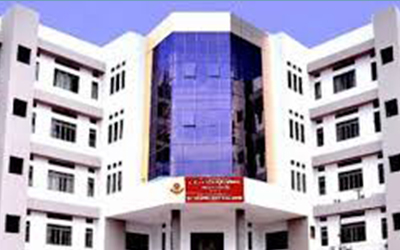Chennai’s UG Medical Colleges Face Recognition Withdrawal
In a major setback for undergraduate medical education in Tamil Nadu, the Undergraduate Medical Education Board (UGMEB) of the National Medical Commission (NMC) has decided to withdraw recognition to these institutes for deficiencies in Aadhaar-based biometric attendance and footage from cameras installed in these colleges. Government Stanley Medical College Hospital in Chennai, K A P Viswanathan Government Medical College in Trichy, and Government Dharmapuri Medical College and Hospital are among the three medical colleges. These three medical schools have a total capacity of 500 MBBS seats.
Issues with Attendance and Camera Systems
The UGMEB’s decision to remove recognition is based on inadequacies discovered in the Aadhaar-based biometric attendance system and the operation of cameras in these medical institutions. The board deemed the colleges’ reaction to these shortcomings to be “not satisfactory.” This development raises questions about the quality of undergraduate medical education as well as the institutions’ adherence to attendance and surveillance mechanisms.
Biometric Attendance Problems
The flaws in the Aadhaar-based biometric attendance system raise worries about the accuracy of tracking staff and student attendance. The UGMEB anticipates that faculty absences will be recorded on these computers to ensure transparency and accountability. However, institutions have stated reasons such as weekly offs and leave letters as to why faculty members are not registered on the biometric system. This disparity calls into question the effectiveness of the existing attendance tracking system.
Camera Functionality Issues
In addition to the concerns with the attendance system, the use of cameras in some medical colleges has been a source of worry. The cameras have either stopped working or their angles have changed as a result of the weather. These difficulties jeopardize the institutions’ surveillance and monitoring capabilities, thus jeopardizing the safety and security of students and staff.
Medical Education Implications
The UGMEB’s revocation of recognition has serious repercussions for undergraduate medical education in Tamil Nadu. The three medical schools affected by this setback have a total intake capacity of 500 MBBS seats. The revocation of recognition jeopardizes the entrance of new students, thereby jeopardizing their education and future professional possibilities.
Penalties and Immediate Measures
Colleges are taking immediate action to remedy flaws and limit the impact on students. Senior authorities, including Health Secretary Gagandeep Singh, have met to discuss how to fix the attendance and camera systems. The colleges have agreed to hire a dedicated individual who will be responsible for updating all absentees on the biometric system. On Monday, a compliance report will be provided to indicate the progress made in fixing these shortcomings.
Meanwhile, the UGMEB has resolved to penalize medical schools for their deficiencies. However, the colleges have the option of appealing the decision to the National Medical Commission (NMC). This alternative allows them to present their case and oppose the removal of recognition, providing them the opportunity to correct the flaws and recover recognition.
Similar Instances in Medical Education
The denial of recognition to Tamil Nadu medical colleges is not an exceptional issue. Several more medical facilities in different sections of the country have recently been denied recognition.. This issue has raised questions about the quality of medical education and the norms that these institutes uphold.
One such case occurred in the state of Kerala, where the recognition of a medical college was revoked due to significant infrastructural faults and non-compliance with the Medical Council of India (MCI) requirements. In terms of faculty strength, infrastructure facilities, and patient load, the college fell short of the needed benchmarks. As a result, the MCI revoked its recognition, emphasizing the importance of improving medical education.
In another case, a medical college in Maharashtra suffered a similar fate after failing to meet the MCI’s recognition criteria. The institution lacked sufficient faculty members, adequate facilities, and necessary equipment, which jeopardized the quality of education and training supplied to students. As a result, the MCI denied the institution recognition, emphasizing the necessity of maintaining the appropriate standards in medical education.
These examples show the need of following the guidelines and regulations established by the separate medical bodies in the country. Recognition is important for medical colleges since it assures that they meet the required standards of education, infrastructure, and faculty, ensuring the quality of medical professionals produced.
Efforts must be made to overcome medical education deficits such as a lack of trained faculty, poor infrastructure, and a lack of current teaching methods. Regulatory organizations should undertake regular inspections and evaluations to monitor and maintain the quality of medical establishments. Collaboration between medical schools and regulatory organizations can also assist identify areas for improvement and execute necessary adjustments to improve the quality of medical education.
It is critical that medical colleges and regulatory agencies collaborate to maintain standards and guarantee that students receive quality education that will prepare them to become competent healthcare providers in the future.























